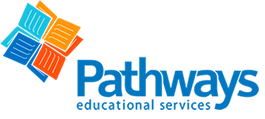
MCT4C vs. MAP4C: Which High School Math Course is Right for You?
Share
With different courses tailored for specific career and education paths, choosing the right courses for your academic future is crucial. In Ontario, students can choose MCT4C (Mathematics for College Technology) and MAP4C (Foundations for College Mathematics). Both offer unique benefits and align with particular future goals. This guide will help you understand the differences and determine which is the best fit for you.

MCT4C vs. MAP4C: Which is Easier?
Generally, MAP4C is easier than MCT4C, but it depends on the student.
MAP4C is the more straightforward course for students focused on practical applications of math. It’s designed to address real-life problems with a focus on financial mathematics, data management, and modeling. Some consider it less challenging than more abstract mathematical concepts like Algebra or Advanced Functions. This course is best for students who are seeking a basic understanding of everyday mathematical concepts, but not planning to pursue a career in science or math. MAP4C is better suited to post-secondary education paths that involve basic math concepts, like business or social sciences.
MCT4C emphasizes technology and technical applications. It delves into more complex algebraic concepts and technology-based problem solving. MCT4C is the better option for students who excelled in their Grade 9 and 10 Academic or Applied Math courses. If you aspire to pursue a career in science or mathematical fields, this course will best prepare you for the challenging concepts involved.
Take MCT4C Online
Skills and Knowledge Gained in MCT4C and MAP4C
Both MCT4C and MAP4C equip students with valuable skills but differ in their focus areas.
In MCT4C, students gain expertise in technical mathematics, such as advanced algebra, trigonometry, and geometry. This prepares students for further studies involving engineering technology and computer sciences. Students develop critical thinking and problem-solving skills.
MAP4C, meanwhile, focuses on practical applications of mathematics in everyday life. The course prepares students for real-world scenarios, such as budgeting, managing personal finances, and interpreting data. Learners enhance their ability to approach and solve practical problems using mathematical reasoning.
Both courses help foster an appreciation for mathematics, encouraging students to become self-reliant learners and effective decision-makers in various situations.
Post-Secondary and Career Opportunities
Understanding the opportunities that each course unlocks can significantly impact your decision.
Completing MCT4C offers pathways into college programs that involve technical disciplines. Such programs might include engineering technology, computer programming, or architectural technician courses. The strong technical mathematical foundation MCT4C provides can be pivotal for success in these fields. Professionals in sectors like construction, engineering, information technology, and design often benefit from the skills developed here.
On the other hand, MAP4C sets the stage for college programs focusing on the social sciences, business, and the arts, where practical and applied mathematics is crucial. This course is ideal for students looking to explore careers in fields such as accounting, business management, marketing, and other professions where everyday math applications are essential. Graduates gain skills applicable in diverse roles, from financial advisors to project managers, where data interpretation and financial planning are frequently utilized.
Both MCT4C and MAP4C offer their respective benefits that align well with varied career and further education goals. By understanding your interests, strengths, and career aspirations, you can make an informed decision on which math course best suits your future plans.




